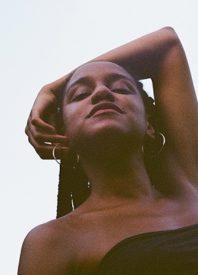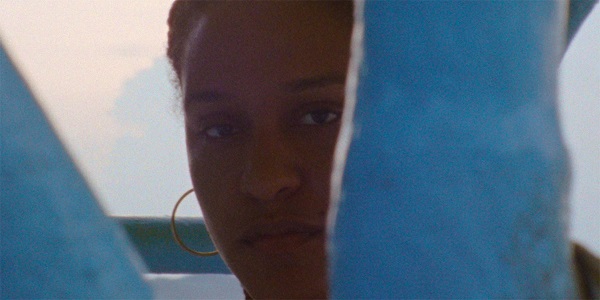
Families and groups comprise pieces who themselves are mysterious. Rebecca Huntt’s divides her debut documentary feature Beba into four different parts. And those four parts involve her relationships where there are imbalances of power. She dedicates the middle sections to her professors and to her problematic white friends. But the most interesting sections involve the beginning and the end, the ones involving her family members.
Huntt, or Beba, as she and her family calls her, presents her family both through contemporaneous footage and archive photos. Her narration, as most narrations do, provide context for these images. But they hit on something within her experience as an Afro-Latina. As an immigrant I know where my father gets his quirks from, but Blackness adds layers of diaspora subconsciously manifesting through their actions.
Most of the documentaries that came out at the same time as Beba are more personal than political, although there are enough of the former to ask what sets this one apart from the others. One of those things is Huntt’s distinct use of language. She talks about her mother once calling her a snitch, and in a way, what she’s doing is snitching. She does the same about her estranged brother, who lives with her even if they barely speak.
There’s a layer of shamelessness here as she reveals these personal anecdotes. But she digs deeper on these stories to find more, to hint to cycles of generational abuse. She relates them to the genocide her father and grandfather escaped in the Dominican. The same goes for the institutionalization of her maternal grandmother in Venezuela. She’s pointing to the world at large, an arena where hurt echoes.
Beba is mostly successful as connecting the historical to the present, the personal with the political. The film experiments on form. It changes between the kaleidoscopic grain of archive photos and footage to the modern day New York, which feels both antiseptic and unvarnished.
There are also are moments when she plays with the disconnect among people, her inherent feeling of displacement even as someone whose mother gave birth to her in this country. There’s one scene where actors who play her college friends explain to her how better off she is in America despite it being a country where police officers kill Black people.
Beba is a documentary of awkwardness and pain. Huntt’s camera shows others existing in multiple forms but shows herself as an anomaly within space, even places that she calls home. Of course, documentaries like this must show her persevering because there’s no other choice. This documentary is a primal scream, an 80 minute snitching session. She doesn’t have to snitch on her family, but I hope she snitches again.
Catch Beba on MUBI.


